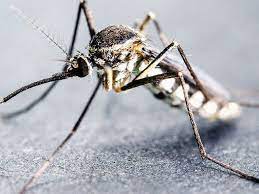Delving into Malaria
In this comprehensive guide, we aim to demystify Malaria, a life-threatening mosquito-borne disease caused by the Plasmodium parasite. Let’s explore how we can combat this global health challenge effectively.
Unveiling Malaria
- Mosquito Transmission: Malaria is primarily transmitted through the bite of infected female Anopheles mosquitoes, which inject the Plasmodium parasite into the bloodstream.
- Variants of Malaria: There are several species of Plasmodium parasites that can cause Malaria in humans, with Plasmodium falciparum being the most deadly.
Symptoms and Diagnosis
Recognizing Malaria Symptoms
- Common Symptoms: Symptoms of Malaria include fever, chills, sweats, headache, muscle aches, nausea, and vomiting. In severe cases, Malaria can lead to organ failure and death if left untreated.
- Variability in Symptoms: The presentation of Malaria symptoms may vary depending on factors such as the species of Plasmodium parasite, the individual’s immunity, and the presence of underlying health conditions.
Diagnostic Methods
- Blood Tests: Diagnosis of Malaria is confirmed through blood tests, such as microscopy and rapid diagnostic tests (RDTs), which detect the presence of the Plasmodium parasite in the bloodstream.
- Clinical Evaluation: Healthcare providers also rely on a thorough medical history, physical examination, and assessment of symptoms to diagnose Malaria accurately.
Treatment Approaches
Antimalarial Medications
- First-Line Treatment: The treatment of Malaria involves the use of antimalarial medications, such as artemisinin-based combination therapies (ACTs), which are highly effective against Plasmodium parasites.
- Drug Resistance: However, the emergence of drug-resistant strains of Malaria poses a significant challenge to treatment efforts, highlighting the importance of ongoing research and surveillance.
Prevention Strategies
Mosquito Control Measures
- Vector Control: Preventing mosquito bites is essential in Malaria prevention. This can be achieved through the use of insecticide-treated bed nets, indoor residual spraying, and environmental management to reduce mosquito breeding sites.
- Chemoprophylaxis: Travelers to Malaria-endemic regions may also benefit from chemoprophylaxis, which involves taking antimalarial medications before, during, and after travel to prevent infection.
A Unified Front Against Malaria
While Malaria remains a formidable global health threat, with coordinated efforts in prevention, diagnosis, and treatment, we can significantly reduce its burden and move closer to eliminating this deadly disease




